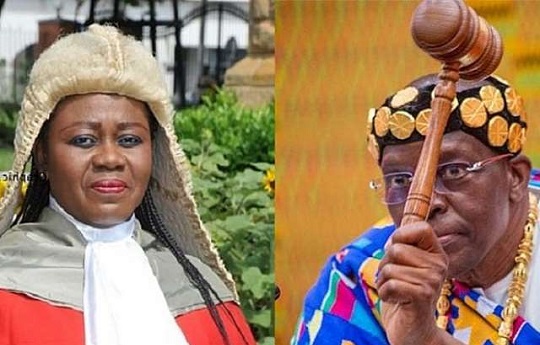The Supreme Court has dismissed an application by Speaker of Parliament Alban Bagbin, who sought to reverse a previous ruling that blocked his declaration of four parliamentary seats as vacant.
This decision adds another layer to the ongoing legal debate surrounding the scope of the Speaker’s powers and the judiciary’s role in parliamentary decisions.
Speaker Bagbin’s application aimed to nullify the Supreme Court’s decision that temporarily halted his ruling on the four seats.
The Speaker also sought to set aside a writ filed by Majority Leader Alexander Afenyo-Markin, which had requested judicial intervention to prevent the Speaker from issuing further declarations on the disputed seats.
Represented by lawyer Thaddeus Sory, Bagbin argued that the court had overreached by suspending his ruling, which he insisted was a parliamentary decision outside the judicial remit. His motion asserted that, as the Speaker’s actions were non-judicial, they should not be subject to stays of execution, a mechanism typically applied to court rulings.
Bagbin’s filing argued: “In terms of orders staying execution of rulings, the Supreme Court’s powers, under the 1992 Constitution of the Republic of Ghana and statute, to stay execution of rulings are limited to rulings of itself and of courts lower in the judicial hierarchy but do not extend to a ruling of the Speaker of Parliament who is not part of the judicial hierarchy.”
The Speaker further emphasized that his rulings, as head of an independent arm of government, are distinct from judicial decisions and, therefore, should not be subject to the same review mechanisms. He expressed concern that the court’s intervention threatened Ghana’s constitutional separation of powers.
However, Chief Justice Gertrude Torkornoo, delivering the ruling on October 30, held that the Supreme Court does indeed have the authority to review parliamentary actions if they are claimed to violate constitutional principles.
The court dismissed Speaker Bagbin’s application, affirming its jurisdiction over constitutional matters even when they involve parliamentary proceedings.





